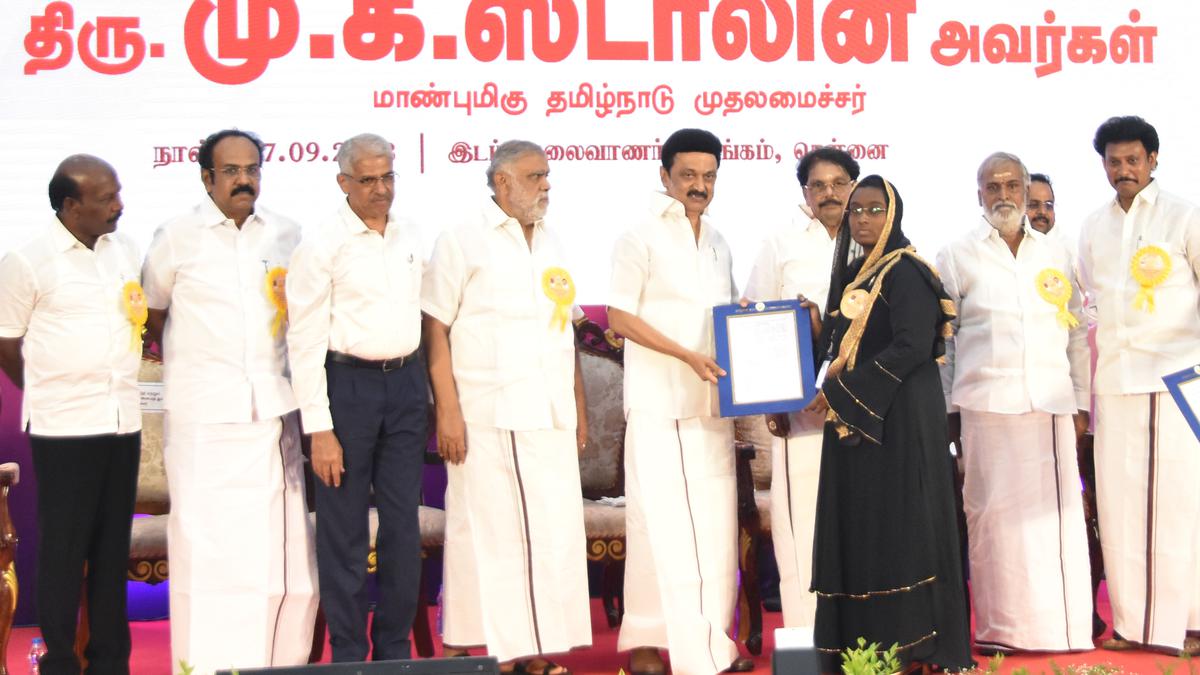
About 50,000 people to be recruited for govt. service in two years: Stalin
The Hindu
TN CM M.K. Stalin announces 50K govt jobs in 2 yrs; 17K this yr. He lauded Vadivelu's family for donating his organs & appreciated govt employees. Delay in TNPSC exam evaluation due to sheer no. of candidates; govt taking measures for job aspirants incl. Naan Mudhalvan scheme. Ministers, CS present.
About 50,000 candidates will be selected for government service in the next two years, Tamil Nadu Chief Minister M.K. Stalin said in Chennai on Wednesday. About 17,000 would be selected this year, he said.
Addressing new recruits at a function, he advised them to offer a chair to those who visited them and listen to their pleas and to ensure that the benefits of government schemes reached the beneficiaries.
Lauding the service of State government employees, Mr. Stalin appreciated the family of government employee Vadivelu for donating his organs after he was declared brain-dead. Vadivelu was accorded State honours at his funeral, which was attended by Health Minister Ma. Subramanian. The family’s gesture would create more awareness of the importance of organ donation, the Chief Minister said.
Mr. Stalin said the delay in the evaluation of the answer sheets of candidates who appeared for various exams conducted by the Tamil Nadu Public Service Commission was due to the sheer number of candidates. He said the on-screen evaluation lab had been expanded at the TNPSC because of the issue of delay.
Referring to the measures being taken by the government for the benefit of job aspirants, including the Naan Mudhalvan scheme for skill development, Mr. Stalin hoped that many candidates from the State would get jobs in the Union government too.
Ministers I. Periasamy, K.K.S.S.R. Ramachandran, Thangam Thennarasu, Ma. Subramanian, P.K. Sekarbabu and Anbil Mahesh Poyyamozhi, Chief Secretary Shiv Das Meena and senior officials were present.













